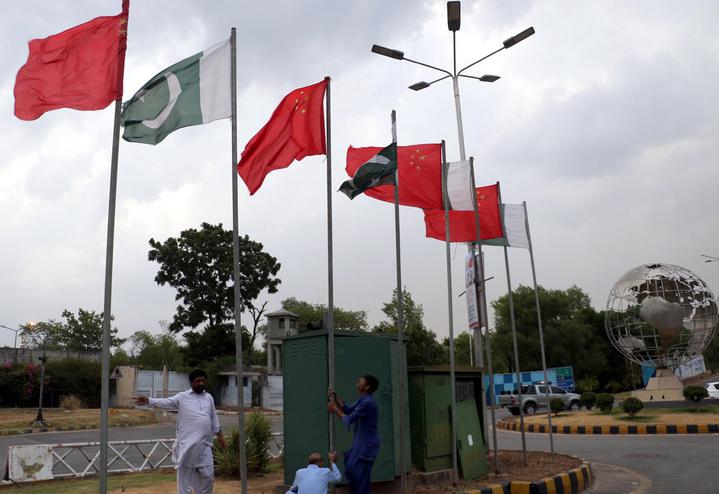China-Pakistan relations, often described as an "Iron Brotherhood," have evolved into one of the strongest and most resilient partnerships in the world. Since the establishment of diplomatic ties in 1951, both nations have shared a bond built on mutual respect, trust, and convergence of interests. Despite numerous changes in governments and leadership in both countries, the relationship has consistently grown deeper and more robust.
Over the past seven decades, China and Pakistan have stood side by side, supporting each other through difficult times. Whether facing regional security challenges, natural disasters, or economic difficulties, neither country has left the other alone. This unwavering friendship is based on mutual benefits, shared goals, and a commitment to peace and development.
Public opinion surveys further highlight the strong bond between the two nations. According to Pew Research Center surveys, Pakistan is consistently ranked among the countries where China enjoys one of the highest approval ratings. A 2019 Pew survey revealed that 82% of Pakistanis held a favorable view of China, underscoring the warmth and depth of this relationship. The mutual admiration and trust between the people of both countries reflect the solid foundation of their diplomatic and economic ties. A 2021 Pew survey also revealed that Pakistanis overwhelmingly support closer economic and political ties with China, indicating that this partnership resonates deeply among the general populace. These public opinion trends demonstrate that the future of this relationship is grounded in widespread approval and shared aspirations.
The two nations share common strategic and geopolitical interests. They collaborate on international platforms such as the United Nations and the Shanghai Cooperation Organization (SCO), promoting regional peace, stability, and cooperation. Pakistan has also applied for BRICS’ membership. It is worth mentioning that BRICS is lead by China and Russia along with Brazil, South Africa and India. Recently several other nations have also joined it.
China and Pakistan’s "Iron Brother" relationship is a true reflection of how two nations can grow together through trust, shared interests, and a commitment to collective progress. The positive public perception, as revealed in various surveys, further strengthens the logic behind this enduring partnership.
The China-Pakistan Economic Corridor (CPEC), as the flagship project of China’s Belt and Road Initiative (BRI), stands at the heart of the geopolitics shaping Asia and beyond. With China’s peaceful rise as a global economic powerhouse, CPEC has become a focal point in the larger geopolitical contest, particularly between China and the United States. This rivalry has intensified, as the U.S. actively seeks to contain and counter China’s growing influence worldwide. The U.S. has adopted several strategies to undermine China's ascent, with BRI—and by extension, CPEC—being one of its primary targets.
The rivalry between China and the U.S. has entered a dangerous phase, where the U.S. has shifted from mere competition to a strategy of containment. Washington is leveraging its alliances with the European Union (EU), and key Asian countries such as India, Japan, and the Philippines, to resist China's rise. The U.S. sees BRI as an instrument of expanding Chinese influence across the globe, particularly in regions like Africa, Central Asia, and South Asia. CPEC, as the most prominent project under BRI, is seen as a critical economic corridor that enhances China's connectivity with the Middle East, Europe, and Africa through Pakistan.
Given CPEC's strategic importance, the U.S. has made concerted efforts to derail the project, fearing it could strengthen China’s foothold in South Asia and beyond. These efforts include using political, economic, and even media channels to distort CPEC’s image, destabilize the region, and weaken the China-Pakistan partnership. The U.S. views CPEC not just as an economic project but as a strategic initiative that enhances China’s geopolitical influence, which it seeks to counter at all costs.
Despite these provocations, Pakistan remains resolute in its commitment to protecting Chinese interests and ensuring the success of CPEC. Security around CPEC projects has been significantly enhanced, and Pakistan has established specialized forces to safeguard Chinese personnel and assets.
While geopolitical tensions create obstacles, CPEC continues to serve as a game-changer for Pakistan’s economy. It is not just a collection of infrastructure projects but a catalyst for Pakistan’s economic revival. The investment status of CPEC stands at over $62 billion, with more projects in the pipeline, including roads, energy plants, special economic zones (SEZs), and the development of Gwadar Port. These projects are designed to lift Pakistan out of its economic challenges, providing employment, reducing energy deficits, and modernizing the country's infrastructure.
CPEC’s strategic value goes beyond Pakistan and China. It offers immense potential for regional connectivity, particularly for landlocked Central Asian nations like Afghanistan, Uzbekistan, and Tajikistan, which can access the global market through Gwadar Port. This new trade route is critical for linking Eurasia with the Arabian Sea, reducing transit times, and boosting trade between Europe, Africa, and Asia.
Author: Prof. Engr. Zamir Ahmed Awan, Founding Chair GSRRA, Sinologist, Diplomat, Editor, Analyst, Consultant, Advisor, and Non-Resident Fellow of CCG. (E-mail: awanzamir@yahoo.com).
